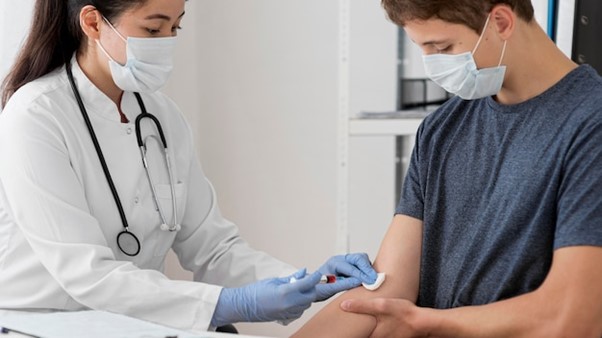You can safeguard and enhance your health, perhaps for many decades, by having certain screening tests a few times in your 20s. The tests are used for early detection of some of the more common and potentially serious diseases occurring in adults, such as sexually transmitted diseases, cancers, diabetes, and heart disease.
Screening tests can find certain conditions in their earliest and most treatable stages, even before you notice symptoms. With information from screening tests, your healthcare provider can work with you to develop preventive measures that will help you remain healthier in your later years. For example, a routine cholesterol test could reveal your risk of developing heart disease, allowing you to take preventive measures—like lifestyle changes—before you develop a serious condition.
The sections below provide information on the screening tests suggested for young adults, up to30 years old. They summarize the recommendations from various authorities, and there is consensus in many areas, but not all. Therefore, when discussing screening with your healthcare provider and making decisions about testing, it is important to consider your individual health situation and risk factors.
For more information on preventive medicine and steps you can take to keep you and your family healthy, read Wellness and Prevention in an Era of Patient Responsibility.
For men
- Blood pressure should be checked every 3 to 4 years. But, if your top level goes over 139, and the bottom level goes less than 80, then it is a sign that your yearly screening should consist of this simple test. You might have to do this twice a year if you have health issues related to heart, kidney, and diabetes.
- Diabetes screening should be done yearly once, and more often if your blood pressure is over 139/89 mm Hg. When you have a BMI of more than 25, then you need to monitor blood sugar levels twice a year.
- Checking for cholesterol levels, and risk of heart diseases should be done once in every 5 years when you are over 25. Get them checked more often, say once in 2 to 3 years, when your blood pressure is high, and if you are diabetic.
- A visit to the dentist has to be done 2 times a year. Cleaning of teeth and other regular checkups are performed too.
- When you are diabetic, go for a vision test at least once a year.
- Immunizations include, acellular pertussis, tetanus-diphtheria HPV, measles, mumps, and MMR are to be given when you are over 19.
- Physical examination for height, weight, and BMI should be done once a year. General health service providers also check for signs of depression, and tobacco use.
For women
Women have to undergo all the tests that are mentioned for men. Apart from that, some specific tests for women should be carried out too.
- For women, who are 21 and above, cervical cancer screening should be done once in a year.
- Self-examination of the breast has to be done by women once when they are over 25. In case of any abnormality or lumps, contact the doctor immediately. Health care provider might recommend a mammogram, MRI and breast ultrasound and other required
- Pelvic exam and pap smear test should be carried out once in 3 years, for identifying the presence of cervical cancer.
- When your pap smear and HPV test are healthy, and if you are over 30, this test can be carried out once in 5 years.
- Up to the age of 25, women should be tested for chlamydia and gonorrhea, if they are sexually active. After 25 years, they are screened for higher risk levels.
- Sexually Transmitted Infections should also be checked for women, who have an active sex life.
- Use of alcohol and tobacco are asked for by the doctor, and diet and exercises are also prescribed, if necessary.
- Bone density test is also recommended once a year in women, who are 35 years of age.
The need for these screenings is to ensure that you are free from worries and ailments. A regular health checkup can help you to be prepared for your future by keeping your mind and body healthy.

